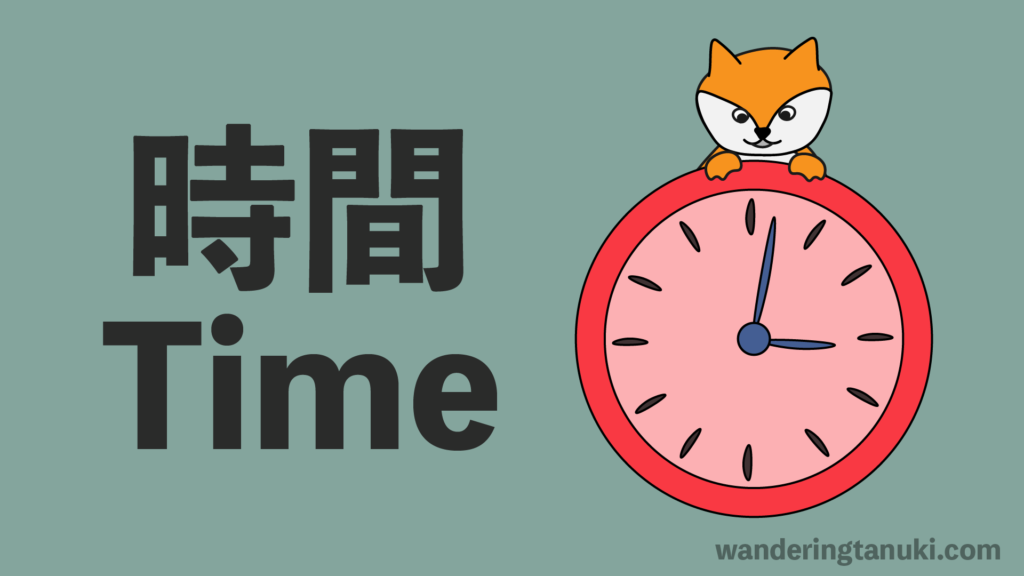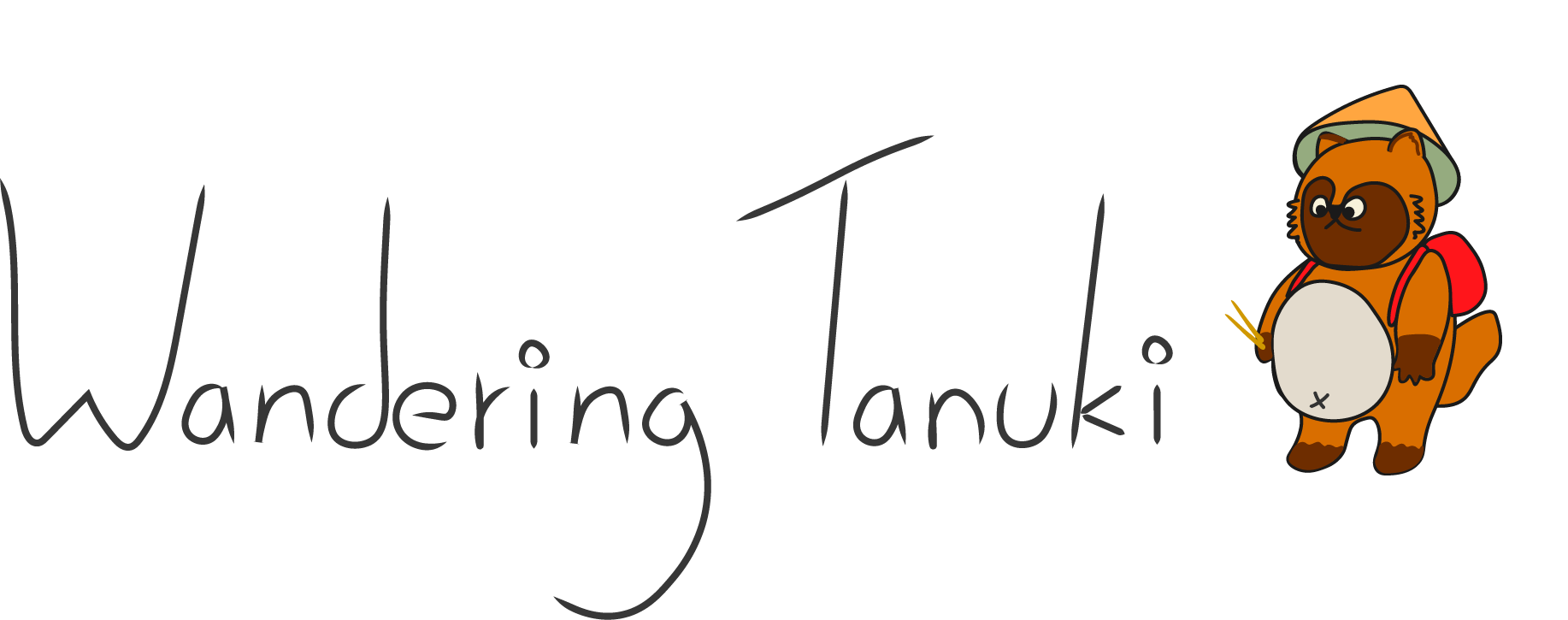How to tell the time in Japanese
You never know when you’ll have to tell the time in Japanese! What if your phone dies and you have to make it to your train? Knowing how to ask and tell the time can be extremely helpful.
In Japan, people are very punctual, as you’ll notice from trains that are almost never late (even by a minute!). When making plans, you’ll want to arrive earlier or right on time.

This article will guide you through everything you need to know about how to tell and ask the time in Japanese!
Basics on how to tell the time in Japanese:
In Japanese, the time is always told in the order of hour then minutes. It’s good to know the Japanese numbers before you learn to tell the time. Be sure to check out my article on Japanese numbers here.
Japan mostly uses regular time, but you’ll also see military time (24 hour clock) for train schedules and official communication. In this section, we won’t talk about using AM and PM to keep it more simple.

Telling the hour
Let’s first go over how to say the hours when telling the time. In Japanese, there are counter words that go after the number. For telling the hour, this counter word is 時 (ji). The pronunciation of the number gets modified to better fit the counter word.
Unfortunately, you just have to memorize how these numbers change. For example, notice how the number four, 四(yon) is pronounced “yo” when telling the hour.
Be aware that this is how to tell the hour like one o’clock , two o’clock etc…, and not how to say “hours”. You cannot use this to say how many hours it takes to get somewhere. This would use the counter word 時間 (jikan) instead. We won’t dive into this here, but it’s good to know!
Telling the minutes
After the hour, you can put the minute. If the minute is 0 you don’t have to put anything. The minutes also use a counter word which is 分 (fun or pun). This word changes in pronunciation depending on the number. Like the hours, you’ll also have to memorize these!
After learning the words up to 10 minutes, you can follow the same pattern. If you memorize the ones digit, you can use that to create larger minutes. All you have to do is take any number and change the one’s digit.
For example, to say “25 minutes” we would take the number 25, にじゅうご (ni juu go) and change the 5, ご(go) to ごふん (go fun) . In this way, “25 minutes” would be にじゅうごふん (nijuu go fun).
Here is an example of what the minutes from 11-20 would look like. Notice how the ones digit follows the same pattern as from 1-10 minutes.
11分 – juu ippun
12分 – juu ni fun
13分 – juu san pun
14分 – juu yon pun
15分 – juu go fun
16分 – juu roppun
17分 – juu nana fun
18分 – juu happun
19分 – juu kyuu fun
20分 – ni juppun
Here’s a quick quiz to practice the minutes.
How would you say the following minutes? 41, 55, 32, 6, 11
Answer:
41分 yonjuu ippun, 55分 gojuu gofun, 32分 sanjuu nifun, 6分 roppun, 11分 juu ippun
Saying “Half past”
Unlike in English, there aren’t many shortened ways to say the minutes. The only thing Japanese people will use is a special word for “half past”. This is 半(han) meaning “half”.
If we want to say 6:30 it would be 6時半 (rokuji han). Even if you say “roku ji han” people will often still write 6時30分.
Putting the hour and minutes together:
Now that you know how to say the hour and the minutes, let’s put them together! You simply have to put the hour and the minutes in order.
When writing the time in Japanese, most people will write the number as a numeral instead of the Japanese kanji character.
We’ll take some examples:
7:21 – 7時21分 – Shichiji nijuu ippun
9:30 – 9時30分/9時半 – Kuji san juppun/ Kuji han
10:12 – 10時12分 – Juuji juuni fun
12:15 – 12時15分 – Juuniji juugo fun
9:00 – 9時 – kuji
If you want more practice, here’s a little quiz:
How would you say the following times? 8:23, 10:27, 2:15, 4:00, 6:30
Answer:
8:23 8時23分 (hachiji nijuusan pun), 10:27 10時27分 (juuji nijuu nana fun), 2:15 2時15分 (niji juugo fun), 4:00 4時 (yoji), 6:30 6時半 (rokuji han) or 6時30分 (rokuji san juppun)
AM/PM and other useful words

AM and PM
Now that you know how to tell the time in Japanese, let’s go over how to add AM and PM. In casual situations, Japanese people will use regular time instead of military time. Note that AM and PM are omitted when it’s obvious which one you’re talking about.
To use 午前 (gozen) and 午後 (gogo), all you have to do is put them before the time.
For example, 6PM would be 午後6時 (gogo roku ji) and 2:43AM would be 午前2時43分 ( gozen ni ji yon juu san pun).
In Japanese, these two words can also be used to indicate morning and afternoon. Don’t be surprised if you hear them without a specific time. For example, “afternoon snack” can be 午後のおやつ (gogo no oyatsu)
Other useful words for times of day
Instead of saying a specific time, Japanese people often use words that indicate a general time of day. This is useful when you want to talk about a larger time frame.
How to ask and answer the time in Japanese:

Asking the time
Since we’ve covered how to tell the time, let’s go over how to ask the time. Here are two ways to ask the time depending on formality.
If you want to ask a stranger or someone you need to be polite with, you can say:
Ima nanji desuka?
What time is it? (polite)
When talking with friends and family, you can say this casual phrase:
Ima nanji?
What time is it? (casual)
Answering with the time:
When answering the time, all you need to do is add です (desu) at the end.This is added for politeness. If you’re talking with friends in a casual situation you can also omit the です(desu). When in doubt it’s better to add it than to omit it!
Sample Q and A dialogue:
For these samples, I only put the polite form. Casual speech can differ from person to person so this is a better way to practice!
The time is 6:15am
ima nanji desuka?
What time is it?
Gozen roku ji juu go fun desu.
It’s 6:15 am.
The time is 8pm
Ima nanji desuka?
What time is it?
Gogo hachi ji desu.
It’s 8pm.
It can take awhile to learn how to tell the time in Japanese. I hope that this article can help clear any confusion you might have about saying the time. If you’re interested in more Japanese language learning blog content, be sure to check out my other articles like How to order coffee at a coffee shop in Japanese or How to Say Yes and No in Japanese.
~ Tanuki





